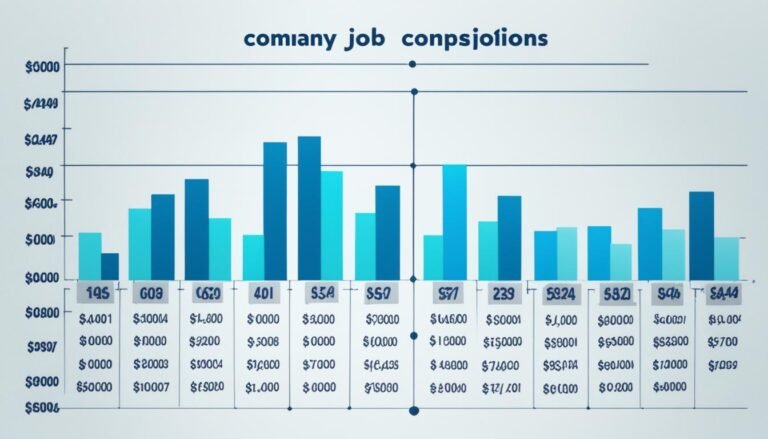Exploring Different Types of Employment: Statutory, Contingent, Seasonal, and 1099 Employees
When exploring the diverse landscape of employment, it's akin to setting off on a journey through a labyrinth of employment types.
From the steadfastness of statutory roles to the flexibility of contingent positions, the ebb, and flow of seasonal work, and the independence of 1099 contractors, each avenue offers unique insights into the world of work.
As you journey through these distinct paths, you'll uncover the intricacies and nuances that shape the employment experience, shedding light on the rights, challenges, and regulations that govern each employment category.
Stay tuned as we unravel the intricacies of statutory, contingent, seasonal, and 1099 employees.
Key Takeaways
- Statutory employees receive legal protections and benefits, while 1099 contractors handle their taxes independently.
- Contingent workers offer adaptability, diverse skills, and flexibility in workforce adjustments.
- Seasonal employment caters to demand fluctuations, supports economic growth, and provides flexible work arrangements.
- Understanding tax responsibilities, legal rights, and financial considerations is crucial for different employment types.
Definition of Statutory Employees
Statutory employees, as defined by the Internal Revenue Service (IRS), are individuals who are treated as employees for tax purposes, even though they may not meet the traditional criteria of employee status. This tax classification is important as it determines how these individuals are taxed and their eligibility for certain benefits. Statutory employees typically fall into specific categories such as drivers who distribute certain products, full-time life insurance salespeople, individuals who work at home on materials provided by an employer, and salespersons who sell products on behalf of a principal.
Being classified as a statutory employee impacts how income taxes are withheld. Employers are required to withhold Social Security and Medicare taxes, and in some cases, income taxes, from these employees' wages. Understanding the nuances of this classification is essential for both employers and employees to ensure compliance with tax laws and regulations. Proper classification of workers helps avoid potential penalties and ensures that both parties are aware of their tax responsibilities.
Characteristics of Contingent Workers
Contingent workers, also known as temporary or freelance workers, play an important role in today's dynamic workforce by providing flexible labor solutions to businesses. These workers offer companies the ability to adjust their workforce based on demand, allowing for greater flexibility in managing resources. One key characteristic of contingent workers is their ability to work flexible hours, accommodating varying business needs. They excel in handling diverse projects, bringing a fresh perspective and specialized skills to each assignment.
| Characteristics of Contingent Workers | |
|---|---|
| Flexibility | Contingent workers offer businesses the ability to adjust workforce size based on demand, enabling cost-effective labor solutions. |
| Diverse Projects | Contingent workers thrive in environments with diverse projects, bringing unique skills and perspectives to each task. |
| Adaptability | These workers quickly adapt to new environments, making them valuable assets in fast-paced industries. |
Overview of Seasonal Employment
Seasonal employment presents a unique staffing model that caters to fluctuations in consumer demand and operational needs within various industries. In the seasonal job market trends, businesses often hire temporary workers during peak seasons to manage increased workloads efficiently. This type of employment is prevalent in sectors like retail, hospitality, agriculture, and tourism, where demand varies throughout the year.
The impact of seasonal employment on local economies is crucial. During busy periods, such as holidays or harvest seasons, businesses rely on seasonal workers to meet customer demands promptly. This temporary workforce injects money into the local economy through increased consumer spending and job creation. Additionally, seasonal jobs provide opportunities for individuals seeking flexible work arrangements or supplemental income.
However, the seasonal job market can also face challenges, such as finding qualified workers for short-term positions or managing fluctuations in staffing levels effectively. Despite these obstacles, seasonal employment continues to be an essential component of many industries, supporting economic growth and workforce diversity in various regions.
Understanding 1099 Contractors
Understanding 1099 contractors involves grasping the nuances of independent contractor agreements and tax implications for both parties involved. When dealing with 1099 contractors, keep in mind the following key points:
- Tax Deductions: 1099 contractors are responsible for handling their own taxes, which means they can take advantage of various tax deductions related to their work.
- Contract Negotiation: Clear and detailed contracts are essential when working with 1099 contractors to outline project scope, payment terms, and other important aspects.
- Independent Work Environment: 1099 contractors operate independently and aren't considered employees, giving them more flexibility in how they complete their work.
- Financial Responsibility: Since 1099 contractors aren't entitled to benefits or protections like statutory employees, they must manage their finances carefully to account for taxes and expenses.
Understanding these aspects of working with 1099 contractors is essential for both parties involved to ensure a successful and legally compliant working relationship.
Rights of Statutory Employees
Statutory employees possess specific legal entitlements and protections within the employment framework. These workers are classified as employees by statute, providing them with rights protection under various labor laws. Employers have legal obligations towards statutory employees, including ensuring compliance with minimum wage laws, providing a safe work environment, and offering benefits such as workers' compensation and unemployment insurance.
One key aspect of the rights of statutory employees is that they're entitled to certain benefits that independent contractors or other types of workers may not receive. For example, statutory employees have the right to receive overtime pay for hours worked beyond the standard workweek, in accordance with the Fair Labor Standards Act. Additionally, they're protected from workplace discrimination and harassment under anti-discrimination laws, ensuring a fair and equitable work environment.
Understanding the legal obligations and rights protection afforded to statutory employees is essential for both employers and workers to maintain a harmonious and compliant workplace.
Benefits for Contingent Workers
As a contingent worker, you enjoy flexibility in scheduling, allowing you to balance work and personal commitments effectively.
This type of employment also offers you the opportunity to engage in diverse projects, expanding your skill set and professional experience.
Embracing these benefits can lead to a dynamic and fulfilling career as a contingent worker.
Flexibility in Scheduling
Flexibility in scheduling is a key advantage for contingent workers, allowing for adaptive work hours based on project demands and personal commitments. This flexibility brings several benefits, including:
- Remote Work: Contingent workers can often work from anywhere, providing a better work-life balance.
- Varied Work Hours: Flexibility in scheduling allows for adjusting work hours to accommodate personal obligations.
- Opportunity for Job Sharing: Contingent workers can guarantee job responsibilities to make sure work is completed efficiently.
- Increased Productivity: Flexible scheduling can lead to higher productivity levels as workers can choose the times they're most focused.
Opportunity for Diverse Projects
With the opportunity to engage in diverse projects, contingent workers can expand their skill sets and adaptability in the ever-evolving work landscape. By being exposed to a variety of projects, you have the chance to acquire new skills, develop different competencies, and broaden your professional experience.
This exposure to diverse opportunities not only enhances your expertise but also increases your marketability in the job market. Working on a range of projects allows you to showcase your versatility and flexibility, demonstrating your ability to excel in different environments.
Embracing project variety as a contingent worker opens doors to new challenges and learning experiences, ultimately enriching your career journey and paving the way for future opportunities in the dynamic employment landscape.
Challenges Faced by Seasonal Employees
Seasonal employees often encounter difficulties handling inconsistent work schedules and uncertain job stability. These challenges can have a major impact on their overall job satisfaction and financial security. When considering a seasonal position, it's important to be aware of the potential obstacles you might face:
- Coping with: Seasonal workers often experience fluctuations in their income due to the nature of their temporary roles.
- Limited Benefits: Many seasonal positions don't offer the same benefits as full-time roles, such as healthcare or retirement plans.
- Job Insecurity: The temporary nature of seasonal work can lead to job insecurity, with workers unsure of whether they'll be rehired for the next season.
- Lack of Career Progression: Seasonal roles may not provide opportunities for career advancement or skill development, leading to stagnation in professional growth.
Dealing with these challenges requires careful planning and financial management to ensure stability during the off-season and prepare for potential gaps in employment. It's important to weigh the benefits and drawbacks of seasonal work before committing to a position.
Tax Implications for 1099 Workers
Understanding the tax implications for 1099 workers is fundamental for ensuring compliance with regulations and managing financial responsibilities effectively. As a 1099 worker, you are considered self-employed, which means you are responsible for paying both the employer and employee portions of Social Security and Medicare taxes. Additionally, you may be eligible for various tax deductions that can help reduce your taxable income. Below is a breakdown of key tax implications and payment terms for 1099 workers:
| Tax Implications | Payment Terms |
|---|---|
| Self-Employment Taxes | Due quarterly |
| Tax Deductions | Varies based on expenses |
| Estimated Taxes | Required to avoid penalties |
| Tax Filing | Annual filing required |
It is essential to keep detailed records of your income and expenses to accurately report your earnings and claim all eligible deductions. Understanding these tax implications and payment terms will assist you in effectively managing your finances as a 1099 worker.
Regulations for Statutory Employees
To guarantee compliance with employment regulations, statutory employees must adhere to specific guidelines regarding their classification and responsibilities within the workforce. It's essential for statutory employees to understand these regulations to make sure they're correctly classified and fulfill their duties appropriately.
Here are some key points to take into account:
- Classification Criteria: Statutory employees must meet specific criteria outlined by the IRS to qualify for this classification.
- Tax Obligations: Understanding the tax implications and obligations that come with being classified as a statutory employee is important for compliance.
- Benefits Eligibility: Statutory employees may have access to certain benefits, depending on their classification and the regulations in place.
- Worker Rights: It's important for statutory employees to be aware of their rights in the workplace, including protections and entitlements under employment laws.
Comparison of Employment Types
When comparing different types of employment, it's essential to take into account the distinct characteristics and implications associated with each classification. Job stability and income security are key considerations when evaluating various employment types. Statutory employees typically enjoy more stability as they're considered part of the core workforce, providing a sense of security in their positions. On the other hand, contingent and seasonal employees may face uncertainties regarding the duration of their employment, impacting their income security.
Career advancement opportunities also differ among employment types. Statutory employees often have clearer paths for career progression within the organization, whereas contingent or seasonal workers may find it more challenging to secure long-term growth opportunities.
Additionally, work-life balance can vary significantly depending on the type of employment. Statutory employees may have more consistent schedules and benefits that support work-life balance, while contingent or seasonal workers may experience fluctuations in workload and benefits availability, affecting their ability to maintain a healthy balance between work and personal life.
Frequently Asked Questions
How Can Employers Differentiate Between Contingent Workers and Seasonal Employees in Their Workforce?
To differentiate between contingent workers and seasonal employees in your workforce, focus on their respective roles and responsibilities. Manage your workforce by understanding the unique nature of their employment terms, ensuring alignment with business needs and legal requirements.
Are There Any Specific Industries or Sectors That Tend to Rely More Heavily on 1099 Contractors?
In certain sectors like technology, gig economy platforms, and creative industries, there's a noticeable reliance on 1099 contractors. This trend impacts the economy as businesses benefit from the flexibility and cost-effectiveness of the 1099 workforce.
What Are the Potential Legal Risks for Employers Who Misclassify Workers as Statutory Employees?
Misclassifying workers as statutory employees can lead to hefty fines and legal battles. The consequences of employee misclassification pose significant compliance challenges, making it essential for employers to classify workers accurately to avoid potential legal risks.
Can Contingent Workers Receive Any Benefits or Perks Typically Associated With Full-Time Employees?
Contingent workers may have limited benefits eligibility compared to full-time employees. While some perks might be offered, such as flexible schedules, health benefits are often exclusive to full-time staff. It's important to understand the distinctions.
How Do Tax Deductions for 1099 Workers Differ From Those for Traditional Employees?
Tax implications for 1099 workers differ from traditional employees. Filing requirements include self-employment tax and deducting business expenses. As a 1099 worker, you manage your own taxes, paying them quarterly and potentially deducting more expenses than a traditional employee.
Conclusion
To summarize, exploring the different types of employment can provide valuable insight into the diverse workforce landscape. Each category, from statutory to 1099 employees, offers unique benefits and challenges. By understanding the rights, regulations, and tax implications associated with each type, you can make informed decisions about your career path.
Remember, the world of employment is like a vast ocean, with endless opportunities waiting to be explored. Embark on your journey and navigate your way to success!







